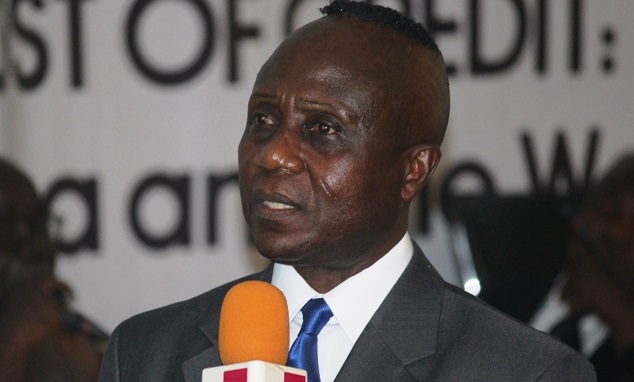- describes new taxes in 2021 budget as regressive
Despite government’s assertion that it has achieved adequate food supply through its flagship programme ‘Planting for Food and Jobs’ (PFJ), the Director of Research at the Institute of Economic Affairs (IEA) – Dr. John Kwakye – has stated that cost of food is still on the high side; making it difficult for many people to have decent meals.
Analysing the increasing cost of food in the country, Dr. Kwakye said it is sad that food inflation alone in the Consumer Price Index (CPI) basket constitutes 43 percent of the total cost for all the items used to calculate inflation.
He argued the figures published by the Ghana Statistical Service negate the narrative told by government that foodstuff is now available at cheaper cost.
“The reality on the ground is that food prices are still expensive. If you go into the CPI Basket alone, food prices command a weight of 43 percent of the whole basket which contains about 260 items,” he said at a post-budget analysis programme organised by the IEA.
He stated that most households in the country are burdened, since a chunk of their income goes into feeding families.
“The figures mean that on average Ghanaians spend 43 percent on food in a month, then the rest goes into all other things like medicals, entertainment etc. If you go to advanced countries, they don’t spend more than 5 percent on food.”
Dr. Kwakye stressed that Ghana has not yet achieved food security, since there are many farming areas in the country which depend on rain even though government has promised to build irrigation dams for farmers.
Linking the agriculture sector to manufacturing, he maintained that low productivity has contributed to the lack of supply for raw materials to industry.
He stated, for example, that manufacturing’s contribution to the country’s GDP over the last decades has seen a constant decline – from over 10 percent to 5 percent.
This, he said, is not good for a middle-income country that seeks to create jobs for its youth.
Revenue mobilisation
Dr. Kwakye is concerned that government’s Revenue to GDP target for 2021 was pegged at 13.4 percent – which he maintains is very discouraging, since most of Ghana’s peers on the continent are doing above 15 percent.
According to him, government should aim at achieving a revenue mobilisation to GDP target of 20 percent for Ghana to accelerate its economic growth.
Giving some proposals to achieve this, Dr. Kwakye said it is important for government to block all revenue loopholes and also pass the tax exemption law to save the country about US$5billion annually.
Taxes in 2021 budget regressive and burdensome
Dr. Kwakye is of the view that most taxes introduced by government in the 2021 National Budget will compound the hardship of Ghanaians.
“The new taxes are mostly consumer taxes, and since they are universal they are regressive rather than progressive,” he said – warning that “the new levies are going to cause general price hikes and increase the cost of living”.
He pointed out that levies on petroleum products as proposed under Sanitation and Pollution Levy, as well as the Energy Sector Recovery Levy, will add to the already existing levies on the product.
This, he said, will negatively affect everybody in the country, since petroleum price increases affects almost all other prices in the economy.
“We understand that petroleum taxes are easier and convenient to collect, but studies have shown that their effect on the poor is higher than on the rich,” he cautioned, stating that government should have rather selected nonessentials such as alcoholic beverages, tobacco and luxury consumer products for the taxes.










